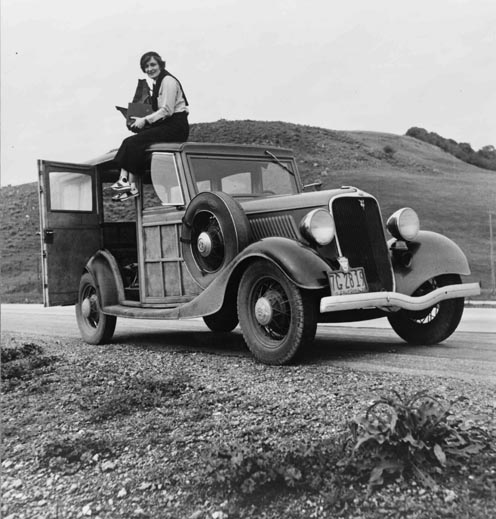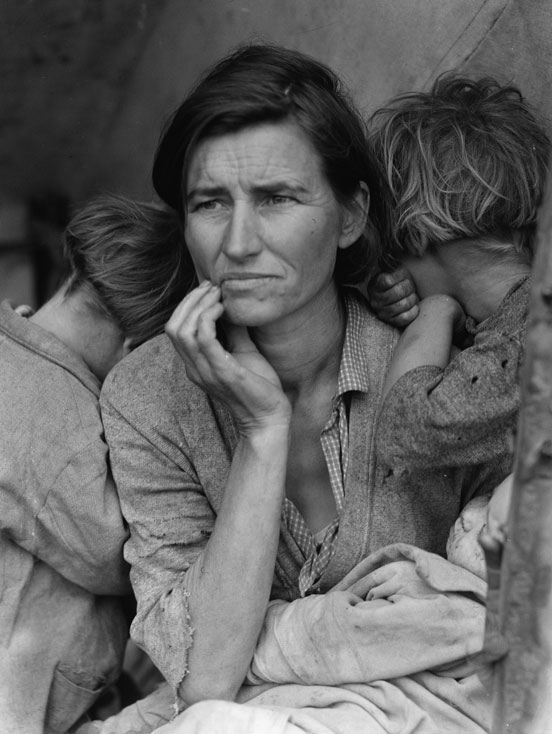
 Migrant Mother montage, 1936 Dorothea Lange had been on assignment for the Farm Services Administration for a month and was driving home when she said she noticed a “pea pickers camp” sign “out of the corner of my eye.” She drove on in the rain for another 20 miles, convincing herself that she didn’t need to go back to take one more set of photos.And then:
Migrant Mother montage, 1936 Dorothea Lange had been on assignment for the Farm Services Administration for a month and was driving home when she said she noticed a “pea pickers camp” sign “out of the corner of my eye.” She drove on in the rain for another 20 miles, convincing herself that she didn’t need to go back to take one more set of photos.And then:
Almost without realizing what I was doing, I made a U-turn on the empty highway. I went back those 20 miles and turned off the highway at that sign, PEA-PICKERS CAMP. I was following instinct, not reason; I drove into that wet and soggy camp and parked my car like a homing pigeon. I saw and approached the hungry and desperate mother, as if drawn by a magnet. I do not remember how I explained my presence or my camera to her, but I do remember she asked me no questions. I made five exposures, working closer and closer from the same direction. I did not ask her name or her history. She told me her age, that she was thirty-two. She said that they had been living on frozen vegetables from the surrounding fields, and birds that the children killed. She had just sold the tires from her car to buy food. There she sat in that lean-to tent with her children huddled around her, and seemed to know that my pictures might help her, and so she helped me. There was a sort of equality about it (Lange, 1960).
The next day, Lange and her editors alerted federal relief authorities, and food was rushed to the camp. Lange also went on, with characteristic instinct and conscience, to photograph Japanese-descended Americans forced into relocation camps during World War II.
The subject of the Migrant Mother photo, Florence Owens Thompson, survived the Depression and raised her children in California. Thompson’s daughters said she had avoided publicity until 1978 because she was ashamed at having been an icon of poverty. But FSA photos like the Migrant Mother gave no hint that the subjects had brought misery on themselves through any fault of their own. Instead, they portrayed good people as victims of a flawed system.
C-Span’s American Artifacts has interviews about the Migrant Mother photo:

